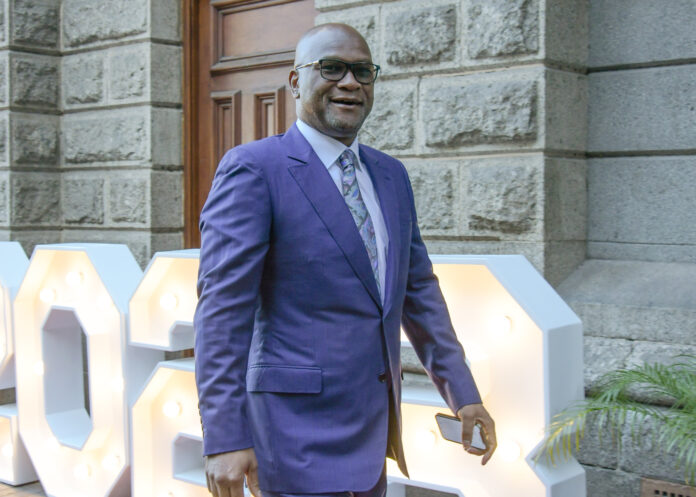The Department of International Relations and Cooperation’s OR Tambo Building turned into a space of solemn unity on Friday, as political veterans and diplomats gathered to honour South Africa’s ambassador to France, Emmanuel Nkosinathi “Nathi” Mthethwa, who died in Paris on September 30 at the age of 58.
Among the mourners were ANC stalwarts Malusi Gigaba, Nomvula Mokonyane, and Nkosazana Dlamini-Zuma, who led heartfelt tributes celebrating Mthethwa’s lifelong service to the liberation movement and his diplomatic legacy abroad.
The former foreign affairs minister Dlamini-Zuma, who had initially not planned to speak, delivered a brief but powerful message after being urged by Minister Ronald Lamola and members of the Mthethwa family to deliver a tribute.
“Comrades, family, friends, I stand here not as a minister or diplomat, but as a sister to Nathi Mthethwa, a man whose heartbeat for our people went from the exile underground to the global stage of Paris,” she said.
Cabinet colleague
Her decision to take the podium was seen as a symbolic moment of unity, bridging ANC factional divides and recalling the shared years she and Mthethwa served together in former president Jacob Zuma’s Cabinet.
Young Lions
Former Home Affairs Minister Malusi Gigaba, who worked closely with Mthethwa from their ANC Youth League days, spoke with visible emotion.
“Nathi dodged apartheid bullets in Mpumalanga and steered us through Cabinet’s tempests Nkandla, Marikana; all of it,” Gigaba said. “The rumour mill churns [speculation] about his fall in Paris, but we know his truth; he was fighter who held us together.”
ANC first Deputy Secretary-General Nomvula Mokonyane – draped in black with ANC colours – delivered the official party eulogy. Mokonyane described Mthethwa as a disciplined cadre who built bridges with France. “He built bridges to France to our youth of tomorrow.”
Mokonyane’s call to honour his diplomatic and cultural contributions rather than controversy resonated deeply with mourners, as Mthethwa’s wife, Philisiwe Buthelezi and their son, Mkhululi, listened through tears.
Mthethwa’s life traced South Africa’s modern history, from underground activism in KwaZulu-Natal, through Cabinet roles in Police and Arts and Culture, to his final chapter as ambassador in France.
Colleagues remembered him as a bridge between liberation and diplomacy, a leader who carried South Africa’s stories, struggles, and spirit to the global stage.



